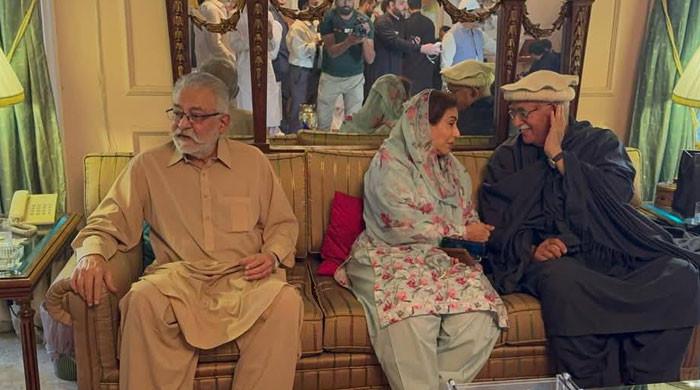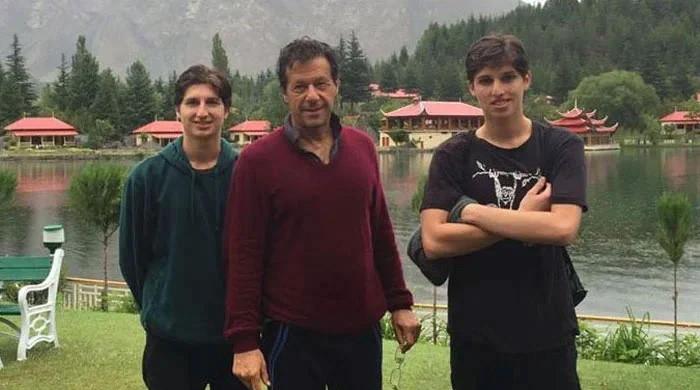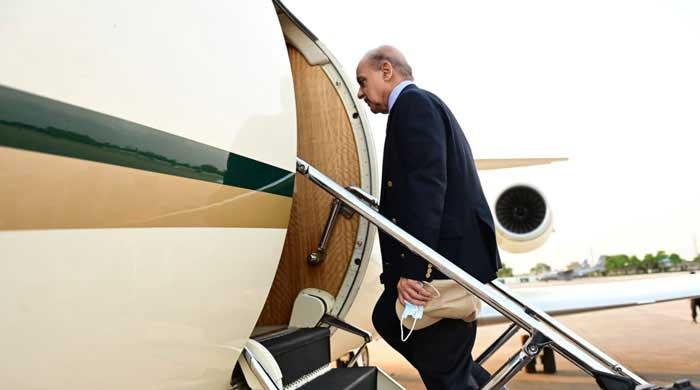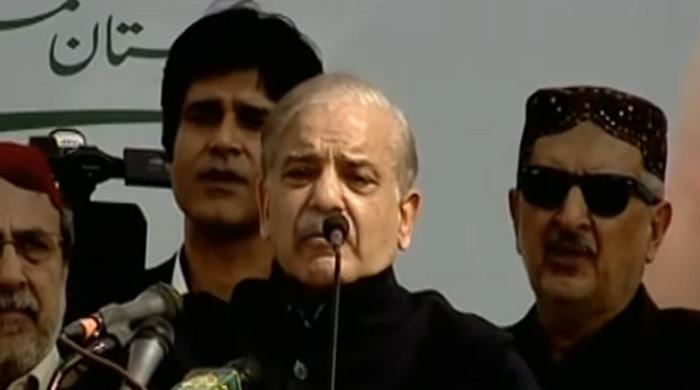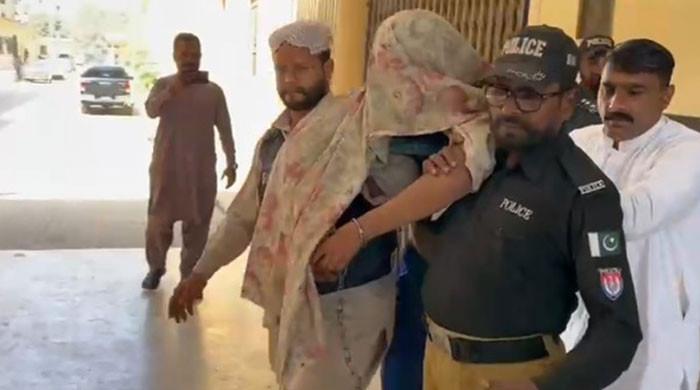Afghan Taliban praise Pakistan's role in US peace deal
Pakistan has been instrumental in bringing the Taliban and the US closer for talks since the past year-and-a-half
March 01, 2020
Afghan Taliban Spokesperson Suhail Shaheen on Saturday praised Pakistan's role in the historic peace deal reached between the Taliban and the US in Doha.
Speaking to Geo News after the signing ceremony, Shaheen said: "We are determined to not use Afghan land against anyone." He added that for the US, the benefit would be that it will not have to worry about attacks from the Afghanistan soil.
"America has agreed to leave Afghanistan through talks. This is a peaceful way and both the parties have agreed on it," he said.
Read more: PM Imran welcomes US-Taliban deal, says spoilers must be kept at bay
Talking about the next steps to be taken under the deal, Shaheen said through intra-Afghan dialogue the future of country's government will be discussed.
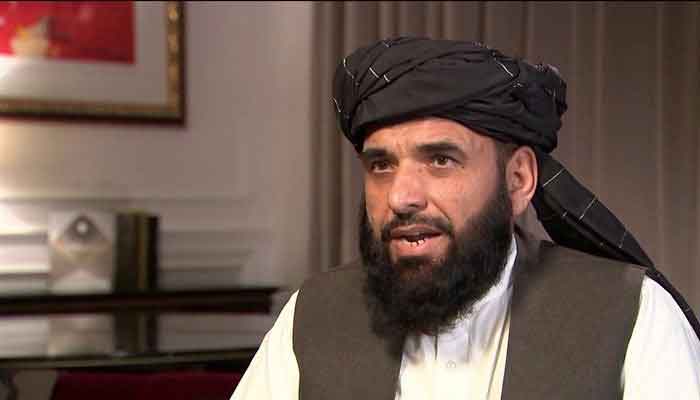
Earlier in the day, Prime Minister Imran Khan welcomed the US, Afghan Taliban peace deal and said: "This is the start of a peace & reconciliation process to end decades of war & suffering of the Afghan people. I have always maintained that a pol solution, no matter how complex, is the only meaningful path to peace."
He said that Pakistan was committed to ensure that the "agreement holds & succeeds in bringing peace to Afghanistan".
Pakistan's critics full of praises
Speaking to Geo News, Foreign Minister Shah Mahmood Qureshi said those who used to criticise Pakistan were praising the country today.
"Congratulations to the whole nation, Pakistan is being accorded respect in the entire situation [of the Afghan peace talks]," he said.
The foreign minister said the peace deal did not come about easily. He said it had taken a year-and-a-half to ensure the agreement was signed between the two parties. "A lot of diplomatic efforts and work were carried out to make this happen," said an elated Qureshi.
Prime Minister Imran Khan's stance has been vindicated today, Qureshi said.
Read more: All you need to know about the US-Taliban peace agreement
He said that when the prime minister used to say that there was no option but a political solution to resolve the Afghan conflict, people laughed at him.
"Pakistan has increased its trust level in the world due to its efforts," he said. "Pakistan has earned the trust of the world based on its hard work and efforts."
Speaking on the challenges that the fragile deal faces, the foreign minister said that Pakistan was wary of those who wanted to sabotage the agreement.
"Even Pompeo said the US would keep an eye on those who would want to sabotage the deal," he stated. "Pakistan has never been negligent of those who want to worsen the situation [in Afghanistan]," he said.
The foreign minister said he was in Doha since Friday and was worried that an act, sentence or any other activity would further delay the deal. "Alhamdulillah, that did not happen," he said.
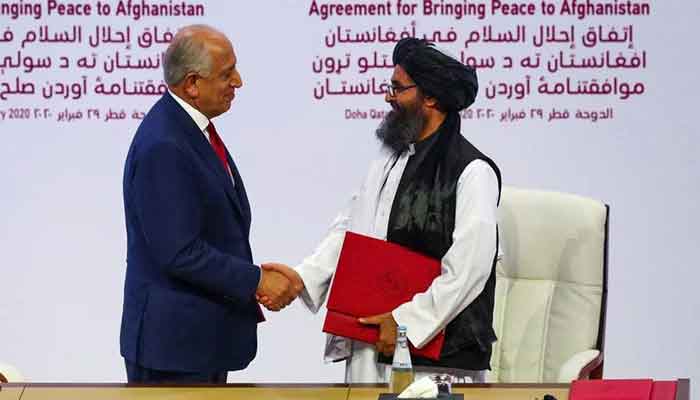
What is the agreement?
- The deal includes a timeline for the withdrawal of all US and NATO troops from Afghanistan as well as guarantees from the Taliban that it will prevent militant groups including al-Qaeda from using Afghan soil to threaten the security of the United States and its allies.
- The agreement lays the groundwork for negotiations between the Taliban and the Afghan government - known as intra-Afghan talks - to end a war that began after the United States launched attacks on Afghanistan after the Sept. 11, 2001 hijacked plane attacks.
- The accord calls for a phased withdrawal of American and coalition forces and also requires the Taliban to initiate a formal dialogue with the Afghan government and other political and civil society groups on a permanent nationwide ceasefire and power-sharing in post-war Afghanistan.
- “The United States will reduce the number of US military forces in Afghanistan to 8,600 and implement other commitments in the US-Taliban agreement within 135 days of the announcement of this joint declaration and the US-Taliban agreement,” the United States and Afghanistan said in a joint statement on Saturday.
- A full withdrawal of all US and coalition forces would occur within 14 months of this deal getting signed, if Taliban fulfil their end of the deal.
- Up to 5,000 Taliban prisoners will be released and the Taliban will release up to 1,000 prisoners by March 10.
- The United States will work with the UN Security Council to remove Taliban members from sanctions by May 2020.
- The next step would be for negotiators to work out an agreement for comprehensive ceasefire and the future governance of the country. Officials and experts say this will pose serious challenges as the Afghan government has until now been sidelined.
- Even before getting to talks with the Taliban, Afghanistan’s two main political rivals - President Ashraf Ghani and Chief Executive Abdullah Abdullah - must settle a dispute over which officials, opposition members and activists should negotiate with the insurgents.




